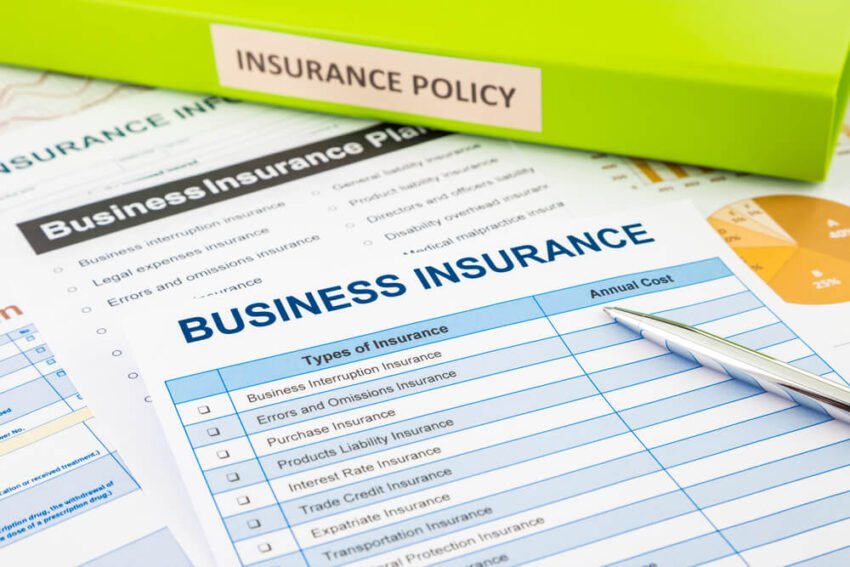Here are many types of insurance options out there that business owners can get. Insurance helps protect your company from different risks that can come up during normal operations. Choosing what business insurance (sometimes called commercial insurance) you need can seem overwhelming, but we’re here to help.
Many business owners start with a Business Owner’s Policy (BOP) for their small business insurance needs. It combines three essential coverages:
- General liability insurance
- Commercial property insurance
- Business income insurance
We made our BOP customizable, so you can add other business insurance coverages to get more protection. For example, if your business provides a professional service to customers, you may want to get a professional liability insurance policy. It can help protect your business from claims that it made a mistake in the professional services given.
We know every business is different. That’s why we’re here to help you get the right types of business insurance.
Types of Insurance Policies for Small Businesses to Consider
You may have to get different types of insurance depending on the industry you’re in. That’s because every business faces unique challenges and risks.
While there are many types of insurance that you can get, read about eight policies that many small businesses can get to help protect them from a variety of risks.
1. General Liability Insurance (GLI)
General liability insurance helps protect your business from claims that it caused:
- Bodily injury to someone else
- Property damage to another person’s belongings
- Personal injury, like libel or slander
2. Commercial Property Insurance
Commercial property insurance helps protect your owned or rented building and equipment that you use to run your business.
A commercial property insurance policy protects the physical location of your small business and your business equipment, computers and office furniture. Owned and leased business equipment are both covered by this policy.
It takes a lot to make a small business go, and a commercial property insurance policy covers a lot, such as:
- Tools
- Inventory
- Supplies
- Valuable papers and business records
- Outdoor fixtures such as signs and fences
A commercial property insurance policy typically applies to any loss to your small business property due to perils such as lightning, wind, hail and fire. Commercial property insurance also covers theft and acts of vandalism.
Be aware that this insurance doesn’t cover damage from earthquakes or floods. You’ll likely have to get a separate policy, like commercial flood insurance, to help protect your business from these kinds of claims.
3. Business Income Insurance
If you can’t run your business because of covered property damage, business income insurance can help replace your lost income. So, you can use this coverage to help pay for ongoing expenses, like rent, utility bills or payroll. This type of insurance is also known as business interruption insurance.
General liability insurance pays out to others when you’re responsible for accidental property damage or injury. As a small business owner, you may be legally responsible if a person’s property gets damaged at your business or away from it. And if your business is responsible for someone’s injuries (not including an employee’s injuries), general liability insurance would pay for their medical bills and lost wages, too. Liability insurance also pays your legal costs if someone sues you over these matters.
Other claims handled by general liability insurance include:
- Reputational harm
- Advertising injury
- Copyright infringement
With the help of a business liability insurance policy, your small business will be able to maintain financial stability if you should get sued by a customer or other business. A general liability policy also pays for your legal costs, along with settlements and judgments.
Financial lenders, landlords, licensing boards and business clients often require general liability insurance before doing business. So, there are many reasons to put commercial general liability insurance at the top of your insurance to-do list. A general liability insurance certificate will show that you’re properly insured.
4. Professional Liability Insurance
Professional liability insurance helps cover lawsuits claiming that you made a mistake in the services you provided. This type of insurance is also known as errors and omissions (E&O) insurance.
5. Workers’ Compensation Insurance
Workers’ compensation insurance gives your employees benefits if they get hurt or sick from their job. These benefits can help:
- Pay for their medical bills
- Replace most of their lost wages if they miss work to recover
- Cover funeral costs if they lose their life due to a work-related injury or illness
- Pay for ongoing care, like physical therapy
Most states require businesses with employees to carry workers’ compensation insurance. You can face fines, penalties and criminal charges if you don’t comply with your state’s law.
6. Data Breach Insurance
Data breach insurance helps your business respond to a data breach if personally identifiable information gets lost or stolen. Some insurers may call this coverage cyber insurance.
Data breach insurance can help pay your costs to:
- Notify impacted individuals
- Offer identity theft monitoring services
- Create a public relations campaign
7. Commercial Umbrella Insurance
Commercial umbrella insurance extends the coverage limits for some of your liability policies. So, if a claim exceeds the limits on your policy, your umbrella insurance can help cover the difference.
8. Commercial Auto Insurance
Commercial auto insurance helps protect you and your employees on the road if you drive company-owned vehicles for business. It can help cover property damage and bodily injury claims from an accident your business causes. This is important because a personal car insurance policy won’t help cover third-party claims in an accident you cause with a business-owned vehicle.
